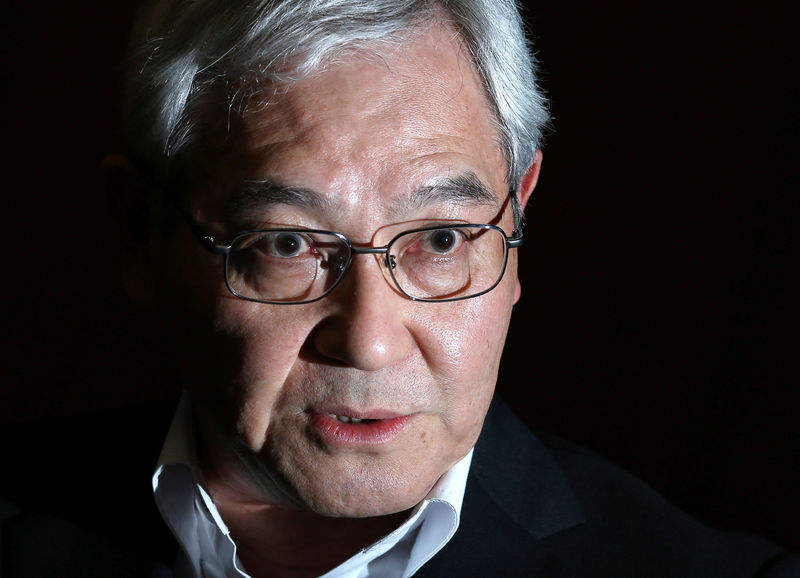By Leika Kihara
KOBE, Japan (Reuters) - Japan's central bank can hold off expanding stimulus for now as robust domestic demand offsets the hit to exports from overseas risks, its board member Makoto Sakurai said, suggesting no additional easing was likely in the near-term.
Sakurai, known for his more conservative views on aggressive monetary easing, instead called for the Bank of Japan (BOJ) to pay more attention to the negative impact of prolonged easing.
The former academic said the imminency of additional easing has subsided compared with around September, when fears of a bigger-than expected slowdown in China's economy clouded the outlook.
"Looking at the current state of Japan's economy, things aren't deteriorating further," Sakurai told a briefing after meeting business leaders in Kobe, western Japan, on Wednesday.
"I don't see a need now to move pro-actively now. Now is the time to closely watch economic developments," he said, suggesting that the central bank was likely to keep policy steady at its rate review next month.
The BOJ kept policy steady last month but gave the strongest signal to date that it may cut interest rates in the near future, underscoring its concern that overseas risks could derail a fragile economic recovery.
Many analysts, however, believe the threshold for more rate cuts is high due to the rising side-effects of prolonged easing, such as the strain years of ultra-low interest rates are inflicting on financial institutions.
Sakurai, among the BOJ's nine board members, said the central bank may need to deploy all available tools if Japan is hit by a severe shock that disrupts its banking system.
However, he saw no immediate need for the central bank to match government's plans for fiscal stimulus with even looser monetary policy, as current BOJ settings were already extremely accommodative.
That leaves maintaining the BOJ's current stimulus programme as the best approach for now along with closely monitoring how commercial banks cope with prolonged ultra-low rates.
"In guiding monetary policy, there's an increasing need to be mindful of the side-effect of continuing our low-rate policy such as that on Japan's banking system," Sakurai said.
Under a policy dubbed yield curve control (YCC), the BOJ pledges to guide short-term rates at -0.1% and the 10-year bond yield around 0%. While the policy has helped keep corporate borrowing costs low, it has flattened the yield curve and crushed the margin commercial banks earn from lending.
The International Monetary Fund urged the BOJ to consider steps to ease the strains on financial institutions, such as shortening the maturity of bond yields it targets.
"It's true the yield curve has flattened quite a bit. We need to take this into account in guiding policy," Sakurai said, when asked about the IMF's proposal.
Sakurai is seen by market participants and analysts as belonging to a broad camp on the central bank board that is more concerned about the side-effects of prolonged easing, while other board members see more room for stimulus.
Japan's economic growth slumped to its weakest in a year in the third quarter as soft global demand knocked exports. Analysts fret that a sales tax hike from October could also weigh on the economy.

"The next half-year is when we need to carefully scrutinise economic developments," he said, noting the risks that an October sales tax hike could cool consumption and that global growth was unlikely to pick up until around mid-2020.